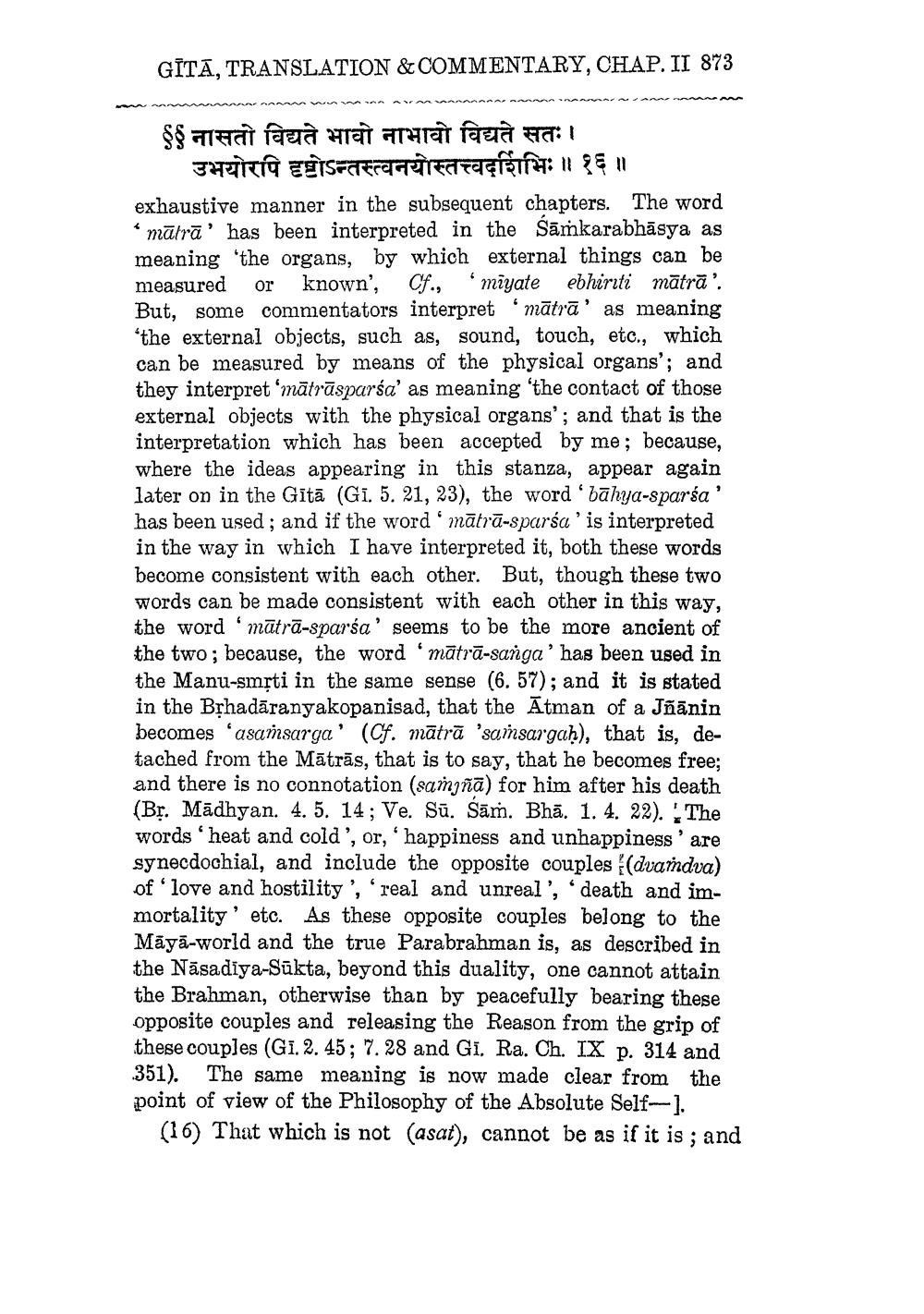________________
GĪTĀ, TRANSLATION & COMMENTARY, CHAP. II 873
$ नासतो विद्यते भावो नाभावो विद्यते सतः।
उभयोरपि दृष्टोऽन्तस्त्वनयोस्तत्त्वदर्शिभिः ॥१६॥ exhaustive manner in the subsequent chapters. The word * mātrā' has been interpreted in the Samkarabhāsya as meaning the organs, by which external things can be measured or known', Cf., 'miyate ebhiriti mātrā'. But, some commentators interpret 'mātrā' as meaning the external objects, such as, sound, touch, etc., which can be measured by means of the physical organs'; and they interpret ‘mātrāsparśa' as meaning 'the contact of those external objects with the physical organs'; and that is the interpretation which has been accepted by me; because, where the ideas appearing in this stanza, appear again later on in the Gītā (Gi. 5. 21, 23), the word 'bāhya-sparśa' has been used; and if the word ' mātrā-sparśa' is interpreted in the way in which I have interpreted it, both these words become consistent with each other. But, though these two words can be made consistent with each other in this way, the word "mātrā-sparśa' seems to be the more ancient of the two; because, the word ' mātrā-sanga' has been used in the Manu-smrti in the same sense (6. 57); and it is stated in the Brhadāranyakopanisad, that the Atman of a Jñānin becomes 'asansarga' (Cf. mātrā 'samsargah), that is, detached from the Mātrās, that is to say, that he becomes free; and there is no connotation (samjña) for him after his death (Br. Mādhyan. 4. 5. 14; Ve. Sū. Sām. Bhā. 1. 4. 22). The words 'heat and cold', or, ' happiness and unhappiness' are synecdochial, and include the opposite couples (dvardva) of love and hostility', 'real and unreal', 'death and immortality' etc. As these opposite couples belong to the Māyā-world and the true Parabrahman is, as described in the Nāsadiya-Sūkta, beyond this duality, one cannot attain the Brahman, otherwise than by peacefully bearing these opposite couples and releasing the Reason from the grip of these couples (Gi. 2.45; 7.28 and Gi. Ra. Ch. IX p. 314 and 351). The same meaning is now made clear from the point of view of the Philosophy of the Absolute Self-1.
(16) That which is not (asat), cannot be as if it is; and




